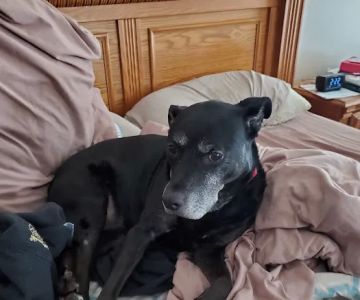What is a Veterinary Doctor? Understanding Their Role and Importance in Pet Health
As a pet owner, you may have heard the term "veterinary doctor" or "vet" countless times, but do you truly understand what they do and why they are so essential to your pet's well-being? After several visits to the vet myself, I started to realize just how important veterinary doctors are in maintaining the health of our beloved pets. In this article, I'll share my insights into what a veterinary doctor is, their key responsibilities, and why they play such a crucial role in the health and happiness of your pets.
1. Defining a Veterinary Doctor
Simply put, a veterinary doctor is a medical professional who is trained to diagnose, treat, and prevent diseases and health issues in animals. Unlike human doctors, veterinary doctors work with a wide variety of animal species, including domestic pets, farm animals, and even exotic animals. Their training is extensive, involving years of study in subjects such as biology, animal anatomy, and pharmacology. From my own experience, veterinary doctors are not just medical professionals—they are dedicated caregivers who understand the unique needs of animals and work tirelessly to ensure their health and comfort.
1.1. The Importance of a Veterinary Doctor in Pet Care
A veterinary doctor is an essential part of any pet's life, much like a general physician is to humans. They are responsible for providing routine check-ups, administering vaccinations, diagnosing illnesses, and offering surgical care. In my case, my vet was instrumental in helping me understand my pet’s health needs and providing the necessary treatments to keep him in good shape. Without the knowledge and expertise of a veterinary doctor, it would be much harder to keep our pets healthy and safe.
1.2. Training and Education Required to Become a Veterinary Doctor
Becoming a veterinary doctor is no easy feat. It requires years of dedicated study and hands-on experience. To become a qualified veterinary doctor, one must first complete a bachelor's degree in a related field such as biology or animal science. Afterward, they must attend a veterinary school and obtain a Doctor of Veterinary Medicine (DVM) degree. This typically involves four years of rigorous coursework in subjects such as anatomy, pharmacology, and pathology, followed by clinical rotations where they gain practical experience working with animals. Additionally, veterinary doctors must pass national and state exams to become licensed to practice. The level of education and commitment required to become a veterinary doctor is a testament to how much expertise they bring to the table in caring for animals.
2. Key Responsibilities of a Veterinary Doctor
The role of a veterinary doctor extends far beyond simply administering vaccinations and providing emergency care. Veterinary doctors are highly skilled professionals who perform a wide range of tasks to ensure the health of animals. I’ve learned that their job encompasses various aspects of animal care, and each responsibility is vital to maintaining the well-being of pets. Let’s take a closer look at some of the primary responsibilities of a veterinary doctor.
2.1. Diagnosis and Treatment of Illnesses
One of the most critical roles of a veterinary doctor is diagnosing and treating illnesses in animals. Whether your pet has a mild cold or a more severe condition, it’s the job of the veterinary doctor to assess the symptoms and recommend the best course of treatment. I had an experience where my dog started showing signs of lethargy, and after visiting the vet, it was determined that he had an infection. Thanks to the timely diagnosis and treatment, my pet made a full recovery. Veterinary doctors use their training and expertise to determine the underlying cause of symptoms and provide the appropriate care, which could involve anything from medication to surgery.
2.2. Preventive Care and Health Maintenance
Prevention is often the best form of care, and veterinary doctors play a key role in providing preventive health services. These services include administering vaccinations, providing parasite control, and offering advice on diet and exercise. Regular check-ups are an essential part of ensuring that pets stay healthy and prevent potential health issues from developing. I noticed that by keeping up with my pet’s regular vet visits, we were able to catch potential issues early and prevent them from escalating into more serious problems.
2.3. Surgical and Emergency Care
Veterinary doctors are also skilled in performing surgeries and handling medical emergencies. From spaying and neutering to performing complex procedures, veterinary doctors have the expertise to provide surgical care when necessary. I remember when my cat had to undergo surgery to remove a tumor. The care and attention given by the veterinary doctor during this time gave me peace of mind. In emergency situations, veterinary doctors must act quickly and effectively to stabilize pets and ensure their survival, making their role incredibly vital in urgent scenarios.
3. How Veterinary Doctors Support Pet Owners
Veterinary doctors not only care for animals but also provide invaluable support and guidance to pet owners. I’ve found that my veterinary doctor has been a great resource for answering questions about my pet’s health, behavior, and lifestyle needs. Whether I had concerns about my pet’s diet or needed advice on behavior management, my vet was always there to offer insights and practical solutions. The relationship between a pet owner and a veterinary doctor is built on trust, and that trust is essential in ensuring the best care for pets.
3.1. Guidance on Nutrition and Diet
Proper nutrition is one of the cornerstones of good pet health, and veterinary doctors are equipped to guide pet owners on the best food and feeding practices. During my visits, my veterinary doctor offered helpful advice on the right diet for my pet, taking into account their breed, size, and any health concerns. Veterinary doctors can help owners choose the right food to prevent obesity, allergies, or other health issues related to poor diet.
3.2. Behavioral Advice and Support
Pets, especially dogs and cats, can sometimes develop behavioral issues that can be difficult to manage. Whether it’s separation anxiety, aggression, or excessive barking, a veterinary doctor can offer valuable advice on how to address these challenges. I once struggled with my dog’s anxiety, and my vet helped me find strategies to ease his fears and improve his behavior. With the support of a knowledgeable veterinary doctor, managing these challenges becomes much easier.
4. Why You Should Trust a Veterinary Doctor with Your Pet’s Care
As a pet owner, choosing the right veterinary doctor is one of the most important decisions you can make for your pet’s health. A trusted veterinary doctor can offer expert care, advice, and support to ensure your pet lives a long, healthy, and happy life. Through their training, knowledge, and dedication, veterinary doctors make a real difference in the lives of animals and their owners. For those who want the best care for their pets, a professional veterinary doctor is the best choice for your furry companions.
If you’re looking for reliable, compassionate care for your pet, I highly recommend consulting a skilled veterinary doctor who specializes in your pet’s needs. Whether it's routine check-ups, treatment for illnesses, or advice on pet health, a veterinary doctor will provide the expertise and support necessary to keep your pet in great health. To learn more or find a trusted veterinary doctor near you, visit Hidden Brook Veterinary for top-notch pet care services.











